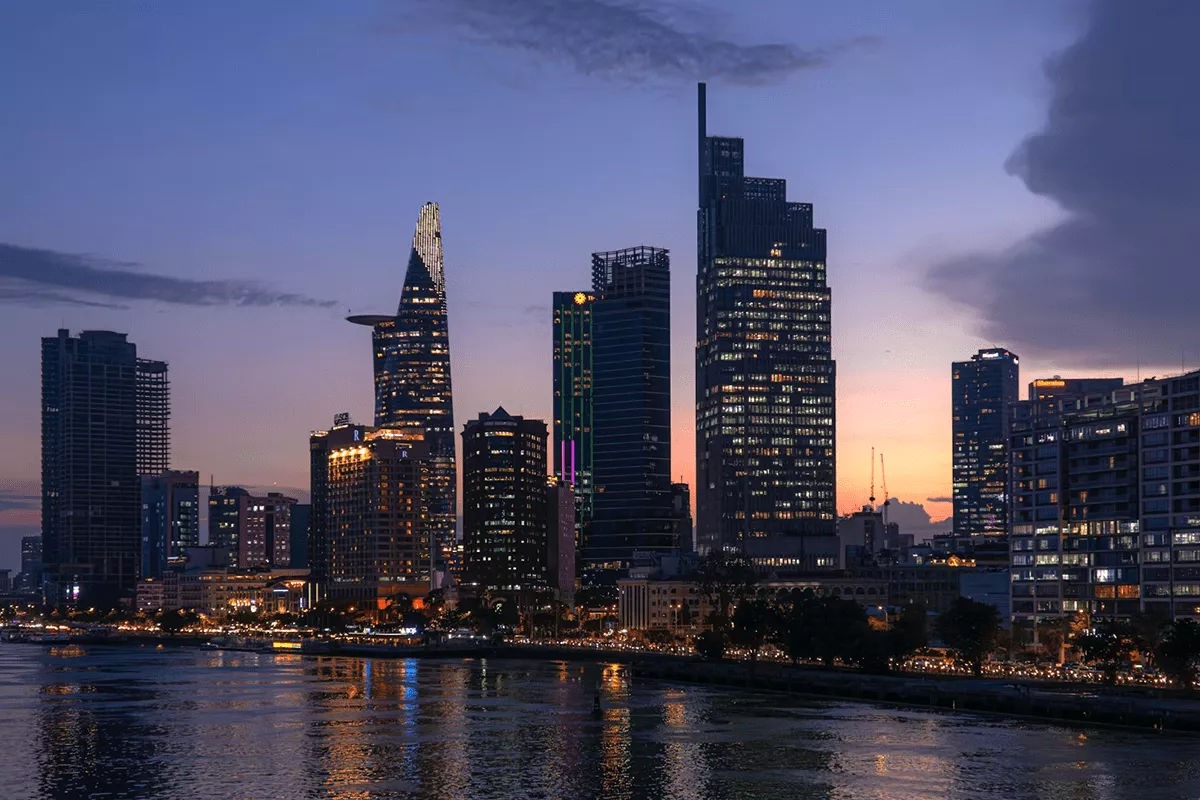If I could describe 2016 in one word it would be “unpredictable.” A close runner up would be “strange.” 2016 is a year of change and the events so far, have influenced my picks for top 10 best investment ideas in the Philippines for 2017.
“Change” was a by-word and it manifested in the electoral processes in the Philippines, the United Kingdom, and the United States. Change in political ideology in the United Kingdom; political leadership in the Philippines and the United States has taken these countries off-course and toward uncharted waters.
In a global economy, there are no more isolated incidents. What affects one region in the world affects other countries. The effects will be felt in business, immigration, prices of commodities, society and culture and peace and order. It will be reflected in the policies enacted by governments and impact our life and work.
For 2016, our forecast was simply one of continuity. It seemed back then that the business conditions in 2015 would carry over in 2016. So we put in the popular and familiar business investment ideas such as Business Process Outsourcing (BPO) and food delivery services.
For 2017, more thought and insight were given to the business investments you should consider given the challenges and uncertainties facing the Philippines next year.
In my opinion, 2017 will be one of our most challenging years. I refuse to use the word “difficult” because challenges are meant to be overcome.
Always remember that in times of chaos, volatility, and uncertainty, opportunities will continue to exist. It will be harder to find because of all the ambiguity. But the truth is no one would want to risk capital under these conditions. For you, this only means you have less competition for those opportunities.
Here are the top 10 best investments ideas in the Philippines in 2017.
Table of Contents
Toggle1. Resource Process Outsourcing
I believe for 2017, Resource Process Outsourcing (RPO) would be an ideal service to offer potential clients. RPO is Human Resource Outsourcing (HRO) taken to another level.
You are not just providing workforce; you are fully accountable for developing them into viable human assets.
RPO has features similar HRO specifically in the acquisition, selection and hiring of talent. The difference is that RPO takes the recruitment aspect several steps further:
- All candidates are pre-qualified before the acquisition stage. RPO uses software to determine the cultural fitness of every applicant.
- Selection criterion of RPO is 80% behavioral and 20% technical; the underlying principle is “everyone can be developed given the right attitude, but disruptive behavior cannot be unlearned.”
- Successful candidates are employed but tightly scrutinized, evaluated and graded weekly, monthly and quarterly. The grading systems recognize work performance and work ethics.
The objective of RPO is to minimize the risk of employers finding potentially disruptive employees by focusing on right-fit candidates that are aligned with company values, purpose, and vision.
I went through RPO training and orientation and found it fascinating. I am convinced RPO is the next evolution of HRO. It is a process that maximizes the value of the human asset.
If you have a background in Behavioral Psychiatry, experience in HR and believe in the importance of company culture, you should consider RPO as a business. The challenge here is getting local clients because Philippine companies have yet to overcome their fears and biases against employees.
But given the Duterte administration’s plan to eliminate contractualization, now is the time for companies to embrace and indoctrinate themselves in the principles of RPO!
2. Leadership Development Academy
Company culture is a growing phenomenon in developed economies. The focus is to allow a culture with productive elements to thrive. If you have people who are consistently performing above par, you should develop them as future leaders in the company.
The value of leadership training is that it helps people accept accountability in their decisions. Employees are afraid of accountability because they cannot accept the consequences of a wrong decision. But a decision can also be the right one.
Leadership training teaches people how to approach the decision-making process and what to do should the result be contrary to expectations. Leaders can foresee change before it happens and institute revisions to strategy. They see opportunity where others see none because they are no longer afraid of making mistakes.
A company that invests in leadership training can move faster because decisions are constantly being made. If you’re familiar with Tony Hsieh’s “Holocracy” ideology at Zappos, it is exactly about developing leaders within the organization.
Some companies offer Leadership Development training. Most of their clients are US companies and those engaged in BPO. These companies conduct monthly seminars and provide retention services.
If you want to start a Leadership Development Academy, you should have the following qualifications:
- Experience in HR, Personnel Development Training
- Degree in Psychology
- Certified in Leadership Programs such as John Maxwell, Dale Carnegie or Gallup’s Strength Finder.
You can offer seminars, monthly re-orientation and skills development programs, e-books, online based modules and customized training programs.
2017 remains a year of uncertainty because we do not know how the changes in foreign policy will affect business conditions. For sure, there will be a period of adjustment – a cycle of unlearning and learning. Companies will greatly benefit from leadership training services.
3. IT and Software Development
The worsening traffic conditions and the ineptitude of those in authority will continue to be a burden on business. Back in the 1990’s when conditions were not this bad; the office would not accept “traffic” as an excuse for tardiness.
Today it is no longer an excuse but a part of everyday life. It does not matter how early you leave the house or where you live. Traffic will get you. It has become extremely unpredictable.
With time becoming a more valuable asset, businesses will be made more dependent on technology to get things done on time. We need more applications that can help us run tasks from remote locations.
In one of the PHILVENCAP forums, I attended, many young, smart and entrepreneurial people presented IT frameworks and systems that would allow more home-based instruction. Students could stay home, and classes would be conducted online.
I asked if the system could be applied to offices and businesses. Theoretically, yes but there would be issues on server systems and high-level encryption.
But can you imagine if students did home-based instruction and employees worked remotely three days a week? There would be reduced traffic because there would be fewer cars on the road!
So rather that coming up with these useless coding schemes why not just subsidize or incentivize investments in IT and Software development to support remote study and work?
Home based work for small businesses is easy to set up, but large corporations with Big Data have well-founded concerns. I do know of one big company that has started to experiment with telecommuting their employees.
Software apps like Uber and GrabTaxi are helping people cope with the transportation debacle. But we need more investments in IT to keep the country progressive in the event business conditions continue to deteriorate.
4. Real Estate
One of our main core competencies is market research, and we’ve done a ton of work on real estate.
You can never go wrong with real estate. Even the most downtrodden, seemingly uninhabitable areas will eventually rise in value. This is because population continues to increase. Developers will always be on the lookout for areas to put up housing and commercial centers.
Related: Forbes’ Top 10 Richest Filipinos in 2016 are Making Waves in Real Estate
To entice developers, local governments fund gentrification activities. You might come across rundown towns being given a makeover: newly paved roads, streetlights, and cleaner surroundings.
Development is rapidly moving south toward the Laguna area. Property values in many subdivisions have risen from 10,000 Pesos per square meter to 15,000 Pesos per square meter. Some areas are approaching 20,000 Pesos per square meter.
If you want to be in the real estate business, you must earn 120 units of the Continuing Professional Education (CPE) at any accredited real estate training center. Then you have to take the licensing exam at the Professional Regulation Commission (PRC).
You must work hard at developing your network of leads and contacts. It is important to amass a large database of buyers and sellers of properties. You can be a Buyer’s Agent and represent the buyer’s side in a transaction, or you can be a Listing Agent.
Commissions for real estate agents average 3% depending on the location of the area. If the property is in a prime, fast-moving location, commission rates will be lower so you can include it in your list.
5. Transportation Rental Services
Here’s one of the best investment ideas in the Philippines for 2017. It is a by-product of our horrendous traffic situation.
Did you hear the reports MMDA Chief Orbos might carry over the number coding scheme up to Saturday?
Instead of the current scheme, it might be revised to be Odd numbered cars will not be allowed on Monday, Wednesday and Friday while Even numbered cars will not be allowed on Tuesday, Thursday and Saturday.
You will not be allowed by Orbos to use your car; a product of blood, sweat and tears, three days a week! Not all municipalities observe a window for coded cars to use.
Without a reliable public transportation system, more people will be inconvenienced. There will be longer lines at the MRT which lack enough trains to service commuters.
The alternative would be to take the cab from home to work three days a week. The minimum charge of these taxi services is 300 Pesos one way. And some of these taxi services are not reliable. They may not have taxis available, and the driver may not even arrive on time.
For students, it’s not feasible to sign up for school bus services three days a week because parents will be asked to pay for the entire month.
For the average family, buying a car even through payment terms is hard on the wallet. It may be difficult to keep up with the financing with the prices of commodities and gasoline rising. Buying a second car would be out of the question.
If Orbos pursues his plan, a car rental business will be a welcome investment in 2017.
These car rental services offer different packages. You can choose from daily, thrice-a-week, weekly and monthly. Some of the rates I’ve seen range from 1,500 Pesos per day to 25,000 per month. The cost would depend on the size and type of car you rent.
A car is not a good investment because it is a depreciating asset. But when used as a service, you can generate a good income from it. If obtained via an auto loan, you could pay off the amortization through car rental payments.
A Toyota Vios 1.5 A/T would cost 800,000 Pesos. Under a 2-year, 50% down payment plan, your monthly amortization would be 18,000 Pesos. If you can rent it out for 25,000 Pesos monthly, you will net 7,000 per month.
It’s not a lot of money, but in 2 years, everything you earn will just be gravy. And that’s assuming you generate only 25,000 Pesos in gross revenues. Some car rental services claim, a car would generate 50,000 to 60,000 per month in revenues for the company.
In a car rental business, people are paying a premium for convenience. It can be expensive to the user, but at least he or she will not be tied down to a car amortization over the next few years.
While you’re at it, why not include bicycles and motorcycles in your list of available vehicles? It widens your market base and improves your value proposition.
6. General Cleaning Services
It is difficult for dual-income households to find enough time and give the home the care and maintenance it deserves. Sure parents can do the regular dusting and sweep, but proper home care needs more detailed cleaning measures to ensure the health of everyone under its roof.
Can you smell something musty wafting in the air? Do you find yourself sneezing more often? Do you often spot new rashes on your skin? Are more people getting ill frequently?
Whenever you come home, you bring unwanted “guests” with you. You don’t see them, but they are there. You track bacteria, germs and pests such as dust mites through your shoes and clothes.
Dust mites accumulate under your mattresses, in your carpets and places where they can feed on dead human skin. Their excretions become allergens which you breathe in.
Excess moisture in the kitchen and bathrooms will cultivate the growth of harmful molds and mildew which can be toxic to everyone’s health.
The level of contamination increases when you have pets and the level of risk rises if you live with children and the elderly.
General cleaning services provide homes and commercial establishments the correct methods to maintain a clean and healthy environment. Homes can sign up for a monthly cleaning schedule while businesses such as hotels and restaurants can opt for more detailed work every 3 to 6 months.
You will have to invest in industrial strength equipment and supplies, but some vendors are open to lease payment programs. Before starting the business get certified by accredited groups such as the International Sanitary Supply Association or ISSA.
Hire people who have general cleaning experience of at least two years. Always check their references to make sure they can be trusted.
7. Non-Medical Home Care
For years, the Philippines’ demographic for the elderly was described as “low and slow.” Our population was not aging as rapidly as other Asian countries.
However, a decline in fertility rate and a leveling off the mortality rate has meant that the aging of the Philippines has accelerated the last ten years.
Only 5% of the elderly; those aged 60 and above, live on their own. The majority lives with their children who are working and supporting their families.
It is difficult for the elderly to receive proper care if both spouses are working. Even if one chooses to stay home, he or she may not be equipped with the skills to caring for the elderly. Many Filipino caregivers prefer to work abroad than build a career in the Philippines.
Non-medical home care would be a great service to provide families who have a senior citizen. Services would cover the following:
- Meal preparation
- Light house work
- Medication reminders
- Physical therapy
- Home errands
- Accompaniment to medical appointments
- Companionship
This will be a great business opportunity for you if you have a background in health care. For personnel, look for people who have undergone caregiver training with TESDA or former nurses.
But it is more important to find people you can trust with the elderly. Make sure candidates can provide NBI, police clearances, and character references.
8. Child Care/Tutorial Center
On the other side of the spectrum are the young ones. They too need special care and attention, especially if both parents are working.
More families are converting part of their homes into child care centers. Not only does it address a growing need but it also provides them a manageable home based business.
It will be a great idea if you include tutorial services for older kids. Parents may not have the time to go through homework and studies with their kids regularly. This is why many parents are on the lookout for good tutors.
The problem with many of the learning centers in the Philippines is they are focused only on teaching fundamentals which are good for developing productive habits. But children need help on current lessons.
For a child care and tutorial center, you should institute improvements that would ensure child safety. The areas for tutorials should be sound-proofed and conducive for productive study.
Hire teachers who work well with children of all ages. Teaching is more than just having the proficiency and knowledge in a subject. The teacher should have the skills to communicate the lessons to the student properly.
Among the services you can offer are as follows:
- Assessment and review of previous exams and quizzes
- Test and quiz samples for practice
- Homework review
- Exam simulation programs
Personally, the learning centers we have today are over-rated. There are online sites that teach fundamentals. Some even have an online instructor. The best approach to learning is a customized, personalized approach.
Recommended: 60 Best Small Business Ideas in the Philippines for 2017
9. Marketing Consultancy
In a tightly competitive global business environment, effective marketing becomes a crucial component for success.
But not many businesses want to fund in-house marketing departments because it costs money and it’s hard to quantify results. Even if you hire the most experienced marketers, you may not get the ROI you want.
Instead, businesses tend to outsource marketing services. They only have to pay for the services they signed up for, and if targeted results are not attained, it is easier to terminate the arrangement.
As the world becomes more dependent on technology, digital marketing will play a more significant role in business development. Digital marketing is:
- Efficient –You can deliver content to a broader audience with the least expense.
- Effective – You compel the audience to go to you and patronize your business willingly.
- Sustainable – You can reuse content as long as it remains relevant, valuable and informative.
If you want to set up a Marketing Consultancy business, you need the following skills on your team:
- SEO Expert
- Social Media Marketer
- Content Writer
- Website Designer/ Programmer
- Graphics Designer
- Market Researcher
As effective as digital marketing is, you should also offer traditional marketing services such as:
- Point of Purchase materials
- Marketing collaterals
- Press releases
- Ad conceptualization and distribution
Studies have shown that a combination of online and traditional marketing can increase the probability of a sale by 15%.
10. Equipment Supplier and Rental Services
With prices expected to increase next year, fewer people would want to invest in depreciating assets such as equipment. If you buy a Loader or a Cement Mixer but construction projects dry up, what will you do with those assets?
You don’t have to buy this multi-million peso equipment but more businesses are looking to rent than acquire more assets.
A good example would be computers which are indispensable for businesses but easily become obsolete or rundown. As a general rule, you should replace PCs every two years. The upgrades and maintenance costs could be expensive.
Leasing out computers will provide businesses a better alternative to manage expenses. You will be responsible for updating, upgrading the maintaining the units for your clients.
You can cater to call centers, Internet shops and offices. Include a lease-to-own option for better value. Some PC lessors offer to buy back the computers at book value to entice you to lease brand new units.
Another good piece of equipment to lease is the generator. The Philippines continues to have a power supply deficit. Buying a generator can be costly depending on the number of appliances and equipment you want to be hooked up to it.
With global temperatures rising, the last thing we need during summer is a brown out. The electric fan is no longer capable of cooling warm and humid temperatures.
You can offer generator-lease services to offices, homes, construction sites, schools, gyms, and restaurants.
Invest in 2017
What about other businesses such as food and outsourcing? There will always be growth potential in every industry. You just have to identify the niche.
Food, for example, is a popular enterprise. But the industry is becoming saturated. The argument that food is a good business because “people love to eat” will put you in the poor house faster than it takes to prepare an order of French fries.
There are more choices now. Tastes and demand preferences are becoming more dynamic and difficult to pinpoint because information is readily available.
Many are asking me about the future of outsourcing because I have been in the industry since 2008. They want to know how President Duterte’s repeated tirades against the United States and President-elect Donald Trump’s foreign and economic policies would affect outsourcing.
Despite the repeated denials of his administration, Pres. Duterte’s verbal attacks on the US, the European community, and the UN have had an adverse effect on outsourcing and business in general. All you need to do is look at the equities market which is the thermometer of the economy’s health.
When all other equities markets in Asia recovered, the Philippines dropped below 6,800 points. We are no longer sympathetic to world events. Those who say the Peso depreciated due to an expected hike in US interest rates fail to consider that when word first came out, the Peso was trading below 49.
The companies that will be affected will be those that offshored services. And it’s not just because of Pres. Duterte but also because of Pres. Trump’s plans to eliminate the US Offshoring Act. Outsourcing is not the same as offshoring!
But outsourcing will continue to flourish because it remains a viable business development strategy. My prediction is off-site or home-based outsourcing will become the next growth segment. In the US, 35% of workforces are outsourced to countries like the Philippines and India. This number is expected to rise to 50% toward 2020.
Off-site outsourcing will also be more cost-effective as you don’t have to rent an office. You can run operations remotely and utilize all the tools and processes available online.
And the outsourcing market isn’t limited to the US. You can offer your services to Australia, the UK, Denmark, Romania and other countries where outsourcing is an accepted business development strategy.
Recommended: Top 15 Small Business Tips in the Philippines for 2017
If you have other business ideas or investments in mind for 2017, feel free to share. Drop me a message and let me know your thoughts.
Let’s help each other make the journey through 2017 a profitable one!
Ricky Sare is a writer, an entrepreneur, and a member of Tycoon Philippines editorial team. He is also the owner of Benchmark Global Management Solutions, Inc., a BPO company located at Makati.





